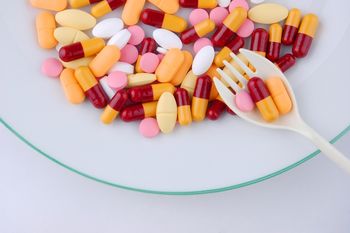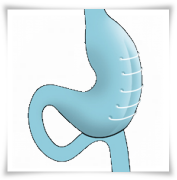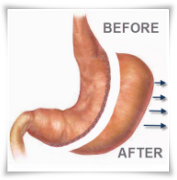Supplements Needed After Gastric Sleeve
Although the sleeve gastrectomy procedure can change a patient’s life for the better, there may be supplements needed after gastric sleeve.
The gastric sleeve procedure will reduce the size of the patient’s stomach, about 60% to 80% will be removed. This means less food will be consumed, which means less calories, but this also means less nutrients are absorbed by the body. It is vital that these nutrients are replaced, and in many cases, there are supplements needed after gastric sleeve surgery.
Click here to read more about Life After Gastric Sleeve Surgery.
Supplements Needed After Gastric Sleeve Surgery
 Here is a list of some of the supplements needed after gastric sleeve surgery:
Here is a list of some of the supplements needed after gastric sleeve surgery:
- Multivitamins
- Protein
- Iron
- Vitamin B12
- Folate
- Calcium
- Vitamin D
- Vitamin A
- Zinc
- Vitamin B1 (Thiamine)
Why Are Supplements Needed After Gastric Sleeve Surgery?
With the gastric sleeve, no nutritional deficiency is experienced unlike the other procedures. Yet, since the patient is eating a small amount of food, it is still possible that the nutrients being ingested will not enough. A lot of doctors will suggest taking calcium supplements, vitamin B and protein supplements with meals every day, this will keep the body fit and healthy.
Irreversible bariatric surgeries like the gastric bypass, biliopancreatic diversion (BPD) and the duodenal switch (BPDDS) effectively accomplishes the weight loss by malabsorption. This is done by altering the way food is digested so that less nutrients and calories are absorbed. Basically with these procedures, the food goes from the stomach to a point further down the intestines, which give the body less time to absorb what it needs, but the side effect is that the body is unable to absorb some specific vitamins and minerals. Patients that undergo malabsorptive treatments are prone to nutritional deficiencies.
Nutritional deficiencies also occur with other types of restrictive procedures like the lap band. In many instances, the patient is forbidden from eating certain foods and the amount of food to be ingested is also limited.
With the gastric sleeve you must remember that the amount of food you can eat is limited, so to avoid any nutritional deficiency, you should make sure you eat healthy. Pay attention to the food you are eating, and make sure you provide your body with the nutrients it needs to stay healthy.
However, there are many cases where people eat what they’re supposed to, but still may be lacking in certain vitamins. This is when the supplements needed after gastric sleeve surgery come in, to fill in the gap.
There is also the possibility that you just naturally are deficient in certain vitamins, and the new limit on the quantity of food amplifies the effects. Again, in this case supplements needed after gastric sleeve surgery would replace those missing pieces.
Supplements Needed After Gastric Sleeve Surgery
Multivitamins
Most bariatric surgeons might recommend taking daily doses of multivitamins and minerals soon after the weight loss surgery, but in some individuals the prescribed multivitamins may not compensate the daily nutritional needs of the body. Patients are advised to discuss with their surgeons regarding the supplements. The surgeon may prescribe chewable or liquid form of supplements since these are easily absorbed by the stomach and they tend to cause less irritation to the stomach and less heartburn as well. The chewables are typically prescribed soon after surgery since you will be on a liquid diet.
Protein
A sufficient amount of protein rich foods should be included in meals following the bariatric surgery. Protein will speed up the healing process while conserving the body’s lean mass and increasing the burning of the fat. The majority of the registered dieticians advise patients to eat high-protein foods. The average person needs about 4 ounces of protein per day, but this may vary with each individual.
Iron
Iron deficiency causes anemia, which is a common side effect that can present months or years after the surgical procedure. This deficiency is even more heightened following the gastric bypass and other types of malabsorptive procedures. Menstruating and extremely obese women are more prone to experience this side effect. Iron supplements are not to be taken with cola, tea, coffee, thyroid medicines and calcium citrate as this can interfere with the absorption. It is suggested to take iron together with vitamin C or a glass of orange juice for better absorption.
Vitamin B12
A lot of vitamin supplements may not contain sufficient amounts of Vitamin B12, and your bariatric surgeon may prescribe additional vitamin shots every month. Instead of a vitamin shot, other surgeons may prescribe 500 micrograms of Vitamin B12 to be taken sublingually (under the tongue) every day. Vitamin B12 can be purchased over the counter in any drugstore. In either liquid or in tablet form, B12 helps in increases the body’s metabolism and can help in the weight loss after surgery.
Folate
Folate is another form of vitamin B and this vitamin is known to help pregnant women avoid neural tube defects. Folate is also known to prevent anemia, cancers and even heart disease. The daily folate requirement is 400 to 800 micrograms per day. Some easily accessible sources of folate are: green leafy vegetables, melons, citrus fruits, berries, dried beans, nuts and peas. Fortified grain products, enriched cereals and breads also contain folate.
Calcium
The most important nutrient for the bone mass is calcium. Weight loss procedures can put the patient at risk for brittle bone disease after bariatric surgery. In order to compensate for any calcium loss, doctors recommend that patients take 1,200 to 1,500 milligrams of calcium, divided into 2 equal doses per day. Older women who are menopausal might require more calcium.
Vitamin D
Calcium is needed to keep your bones strong, and Vitamin D is needed in order to absorb that calcium. Vitamin D is also known as the sunshine vitamin since the human body is able to produce this vitamin by direct exposure to sunlight. Vitamin D can also be added in your milk. Lack of Vitamin D can bring about chronic diseases like heart disease, cancer, stroke, diabetes, osteoporosis, immune system problems and some inflammatory diseases. The recommended intake of Vitamin D is usually based on the patient’s blood level, but most doctors recommend starting at 2,000 AU per day.
Vitamin A
Some people only experience Vitamin A deficiency after undergoing a weight loss surgery. This fat soluble vitamin is needed to be able to see at night. The danger of experiencing the Vitamin A deficiency is more prevalent after the biliopancreatic diversion (BPD) or the duodenal switch (BPDDS), but it is possible to experience Vitamin A deficiency after a gastric sleeve operation.
Zinc
Insufficient Zinc levels can also be experienced after a bariatric procedure. This mineral is needed to grow hair, skin and keep your teeth healthy. Some supplements do not have adequate zinc, so make sure that your supplements have adequate amounts of Zinc in it.
Vitamin B1 (Thiamine)
Inadequate levels of Thiamine can occur after weight loss surgery. This is due to the reduced production of acid plus the reduced food intake, and recurrent vomiting. A constant Vitamin B1 deficiency can progress to nerve problems and eventual loss of memory. There are some pharmaceutical companies that produce supplements that are specifically for individuals that undergone a bariatric procedure. Some surgeons may recommend a specific product that already has everything the patient needs.
Every person is different, therefore everyone’s needs after surgery will also vary. Discussing these issues with the weight loss surgeon and the dietician will help you understand and you will be able to keep your body healthy. The best advice would be to speak with your doctor, find out if you have any pre-existing vitamin deficiencies, and also learn about the supplements needed after gastric sleeve.

